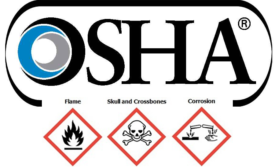News
CSB to reveal Freedom Industries’ chemical leak findings
Incident contaminated drinking water of nine counties
September 15, 2016
Never miss the latest news and trends driving the safety industry
eNewsletter | Website | eMagazine
JOIN TODAYCopyright ©2024. All Rights Reserved BNP Media.
Design, CMS, Hosting & Web Development :: ePublishing









